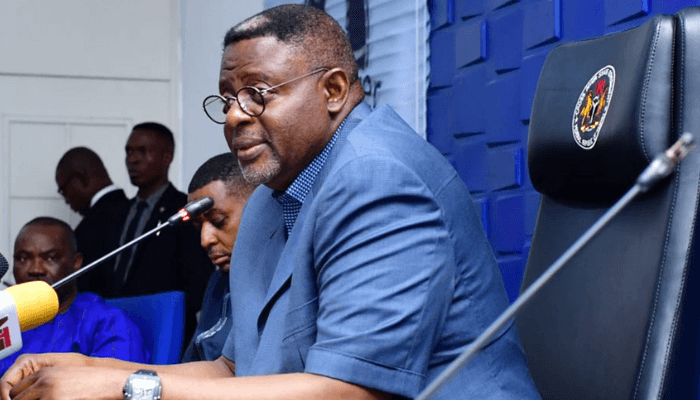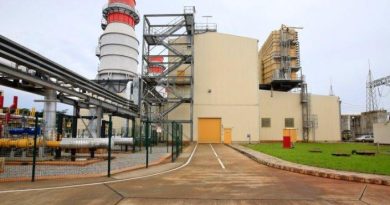Bakassi Deep Seaport will address Nigeria’s shipping nightmare – Gov Otu
Bassey Otu, governor of Cross River state is confident in the ability of the Bakassi Deep Seaport in his state to “address the obvious shipping nightmare Nigeria is currently experiencing” when completed.
His statements come after the Federal Government unveiled a roadmap under the National Policy on Marine and Blue Economy that prioritises the completion and development of nine deep seaports, which include the Bakassi Deep Seaport.
“This policy signals a new dawn for the sector,” said Adegboyega Oyetola, the minister of Marine and Blue Economy.
Otu said that Nigeria’s shipping activities are currently shortchanged as only 21 percent account for cargoes coming into the country, with 79 percent going to countries such as Benin, Togo and Ghana.
Read also: Gov Otu receives new navigational charts for Bakassi deep seaport
He explained that the reason for this is that the existing ports in Nigeria lack depth and capacity, making it difficult to accommodate bigger vessels.
“In effect, one hundred percent of those cargoes were originally meant to be shipped directly into Nigeria,” he said.
“So, the conception of the Bakassi Deep seaport, and of course, when eventually completed, will address the obvious shipping nightmare Nigeria is currently experiencing.”
The Bakassi Deep Seaport, situated at the gateway to the Gulf of Guinea, is expected to serve as a key logistics and trade corridor for Nigeria’s South-South, South-East, and Northern regions.
However, much of the data it operates on dates back to 1903. Earlier this year, a comprehensive mapping of the seafloor and coastline was completed.
Read also: FG endorses $3.5bn Bakassi Deep Seaport
Stakeholders believe that with a commitment to policy implementation, the project now has the institutional backing and political momentum required for full realisation.
“This project is not only central to the industrial future of Cross River, it is a national asset capable of unlocking regional prosperity and redefining Nigeria’s place in global maritime trade,” the governor said.
The maritime policy outlines an ambitious 7 percent annual growth target for the marine and blue economy sector, anchored on the exploitation of Nigeria’s over the 850-kilometre coastline and expansive inland waterways.
Other seaports listed for development include Badagry, Olokola, Ondo, Bonny, Burutu, Benin, Ibom, and Agge.





